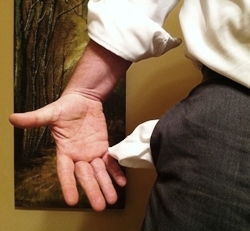Checking Pockets
Sometimes it is the seemingly insignificant details that enable us to see the big picture.
“Hanania taught: One should examine one’s garments on Sabbath eve before nightfall. Rav Yosef observed: This is a great law for the Sabbath. (Shabbat 12a)

The Sages sought to prevent one from unknowingly carrying objects in the public domain on Shabbat. This is perhaps a useful suggestion, but what makes it such an important principle — ‘a great law for the Sabbath’? After all, even if one were to accidentally carry an object forgotten in one’s pocket, this would fall under the Halachic category of mitaseik — an unintentional act for which one is not at all culpable.
Why did Rav Yosef so highly praise Hanania’s advice? Is checking one’s pockets really so central to Sabbath observance?
Sabbath Harmony
We live out our lives in two realms. There is our inner world — our ideals and moral principles, our aspirations and spiritual goals. And there is our outer world — our actions in the ‘real’ world, our struggles to eke out a living and tend to our physical needs in a challenging and competitive world. The greater the dissonance between our inner and outer lives, between our elevated ideals and our day-to-day actions, the further we will have strayed from our Divine image and true inner self.
Shabbat, however, provides an opportunity to attain a degree of harmony between our inner and outer lives.
The holiness and tranquility of Shabbat help enrich our inner lives. Shabbat is a state that is very different from our workday lives, which have been complicated and even compromised by life’s myriad calculations and moral struggles. “God made man straight, but they sought many intrigues” (Ecc. 7:29).
The Sabbath, with its elevated holiness, comes to restore the purity of inner life that was suppressed and eroded by the corrupting influences of day-to-day life, influences that often contradict our true values and goals. But the power of Sabbath peace is even greater. Not only does Shabbat restore our inner world, but it reaches out to our outer world. The spiritual rest of Shabbat enables our outer life to be in harmony with our inner life, bestowing it a spirit of peace and holiness, joy and grace.
Great Principle of Shabbat
Now we may begin to understand the importance that the Sages placed on observing the Sabbath, even in life’s external aspects. The Hebrew word for clothing, beged, comes from the root bagad, meaning ‘to betray'; for clothes can hide and betray the true inner self. On Shabbat, however, even the most superficial facets of our lives, our clothes and pockets, should reflect the sanctity of the Sabbath day.
The Sages prohibited certain activities because of marit ayin, an action’s superficial appearance as inappropriate for Shabbat. And we are commanded to wear special clothing in honor of the Sabbath (Shabbat 113a). These external displays of Sabbath holiness are meant to ensure that its spirit of peace and harmony will permeate and refine our outer lives.
For this reason we should be careful even in situations that do not truly desecrate the Sabbath. Since they can occur frequently, they have the potential to dilute its sanctity. Forgetting an object in one’s pocket does not truly entail Sabbath desecration; it is a completely mindless and unintentional act (Tosafot on Shabbat 11a). But the realm of external actions does not make these fine distinctions between degrees of intention. On the superficial, physical plane, some measure of desecration of Sabbath peace has taken place.
Rav Yosef praised this advice to check one’s pockets before Shabbat as “a great law for the Sabbath.” He recognized that this halachah fulfills the ideal of Shabbat as a force of holiness binding together the spiritual heights of our inner self together with the most superficial aspects of our physical existence. This is truly a great principle, refining the sanctity of the Sabbath and guarding its character, as it seeks to balance our inner and outer worlds, our highest aspirations with our day-to-day actions and external aspects of life.
(Silver from the Land of Israel, pp. 23-25. Adapted from Olat Re’iyah vol. II, p. 28; Ein Eyah vol. III on Shabbat 12a (1:42).)





